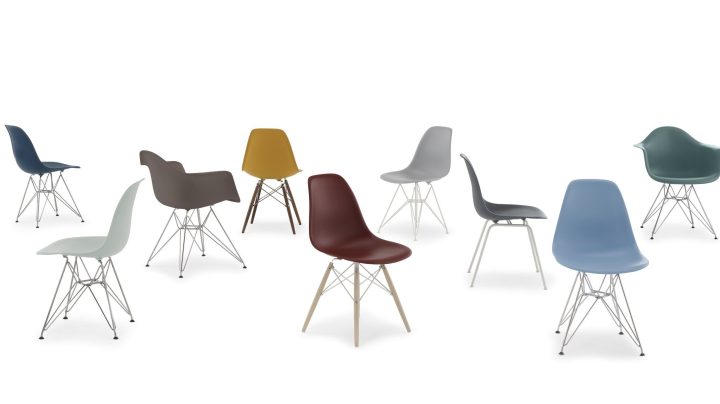
A classic midcentury modern chair gets a sustainable remake
A classic midcentury modern chair gets a sustainable remake

The plastic shell Eames chair is an American design icon — one that will now be made from recycled materials.
Designers Charles and Ray Eames created many different chairs that are still popular today, like an iconic leather and wood lounge chair as well as a molded plastic side chair that was featured at the Museum of Modern Art’s Competition for Low-Cost Furniture Design in 1950.
The pair worked with furniture distribution company Herman Miller to produce and market the chair, which has sold for decades to high end interior designers, businesses and schools. The molded shell chairs, as well as many spinoffs and replicas, still sell briskly today.
“In the case of the plastic chairs, the object was to take a material, which was a high-performance material developed during the war, and try to make it available for householders at non-military prices,” Charles Eames said to host Arlene Francis in a 1956 NBC Interview.
Asked whether the material was practical, Eames said, “Well, they made shock-helmets out of it, so it should be pretty good.”
Charles and Ray Eames were committed to constant improvement, according to Ben Watson, the president of Herman Miller and chief product officer at MillerKnoll.
“Whether that was the first chairs in fiberglass, making those chairs out of bent wire, a little bit later. Constantly dreaming of making them out of molded plywood–technology wasn’t available to ultimately do that until after they had passed away,” Watson said.
Years ago, the company stopped producing the chair with fiberglass. The synthetic fiber involved is made from tiny glass particles that can can harm the eyes, skin and lungs, according to The Centers for Disease Control and Prevention.
So in 2006, Herman Miller re-issued the shell chair using a new plastic. And now, another change: The company announced in September that it will now be making the molded plastic chairs from entirely post-industrial recycled plastic.
Using recycled materials fits the company’s values, Watson said, and will help it achieve sustainability goals set for 2030.
“Part of that is a commitment to using a minimum of 50% recycled content across our whole offer,” he said. “That required us to look literally at every molecule of the products that we’re making.”
Using recycled materials in manufacturing isn’t new. Other brands, like Nike, have been making products out of leftover factory scraps for years now.
After a spike of corporate interest in recycling and limiting waste in the 1990s, there was a lull in interest, according to Reid Lifset, a research scholar at Yale’s School of the Environment and editor-in-chief of the Journal of Industrial Ecology. But that interest is coming back.
“I’d say there a lot more companies that are engaged with the issue,” Lifset said.
Industrial manufacturers that use recycled materials are taking an important first step, he said. The benefit “arises from replacing virgin materials, and it matters what materials are being replaced.”
In many ways, the Eames chairs were ahead of their time, not only as design icons but as sustainable objects. You can still find original Eames shell chairs from back in the day for sale online.
There’s a lot happening in the world. Through it all, Marketplace is here for you.
You rely on Marketplace to break down the world’s events and tell you how it affects you in a fact-based, approachable way. We rely on your financial support to keep making that possible.
Your donation today powers the independent journalism that you rely on. For just $5/month, you can help sustain Marketplace so we can keep reporting on the things that matter to you.

















